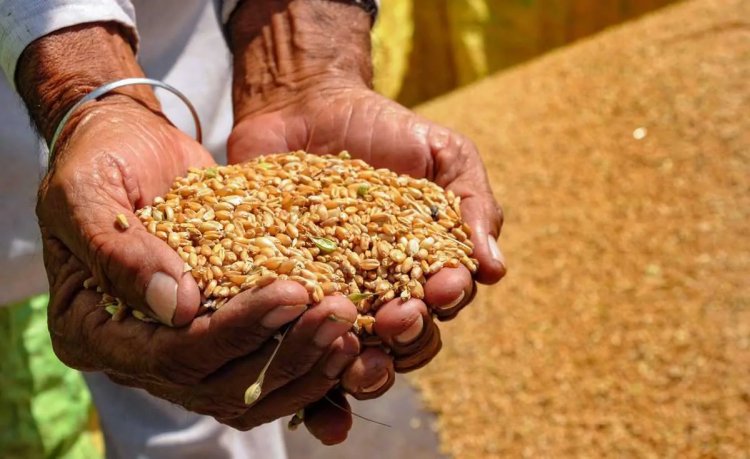The bugle of Lok Sabha elections has been sounded and in such a situation, the government is trying hard to keep the prices of food products under control. The special thing is that even after increasing the minimum support price by seven percent, the inflation rate of food products should not exceed three and a half percent. Government officials are engaged in this effort. It is a different matter that due to the lack of government procurement of major oilseed crops like mustard two months after it arrived in the market, its prices are running below the minimum support price, while the ban on the export of onion has been increased.
Recently, it became a headache for a senior official that when there has been a huge increase in the MSP, then how can there be a low increase in the price of the product in the market? But this is what the government believes. Its solution has been found in the case of wheat and rice. Wheat and rice should be auctioned continuously under the open market sale scheme at a price around the MSP. In such a situation, the businessman will not come to the market to buy the same crops. But the way the temperature in Madhya Pradesh remained above normal in November and December and after that, the wheat crop did not get proper sunlight, the productivity of wheat has been affected. As a result, there are reports of low wheat production in Madhya Pradesh and other western states. Therefore, businessmen may be discouraged from purchasing wheat. The Essential Commodities Act is also being used continuously. Last year, the stock limit was imposed in the middle of the wheat procurement season. Such steps may be seen this year also.
While the ban on the export of onion among other crops continues, onion-producing farmers are suffering the consequences. The ban on sugar exports continues and the limit for direct use of sugarcane juice for ethanol production has been limited to 17 lakh tonnes in the current crushing season. Whereas in Maharashtra, due to higher production than the initial estimates, the sugar industry is demanding to increase this limit and in the event of this not happening, it is demanding that the government create a buffer stock of sugar so that the farmers do not face the problem of paying the sugarcane price.
To keep the prices of edible oils under control, the facility of import of edible oils at concessional and zero import duty has been continued till March 31, 2025. In the case of the import of pulses also, pulses have been kept free from quantitative restrictions till March 31, 2025. At the same time, the import of yellow peas has also been exempted. On the other hand, prices of pulses like lentils are running below the MSP. However, NAFED has been activated for government procurement of pulses under the Price Support Scheme (PSS). But Bihar, a big lentil-producing state, has not informed the Central Government about the quantity of lentils purchased under this scheme, while the prices of lentils there are below the MSP.
It is worth noting that Bihar is a state where the Agricultural Produce Market Committee (APMC) Act is not applicable and even the markets there do not function under this Act. In such a situation, the situation of the farmers of Bihar who depend on market forces is not hidden from anyone.
Amidst all this, we also have to become self-reliant in edible oils and pulses but to prevent inflation from increasing in the election year, government departments are fully prepared to prevent farmers from getting higher prices. Because if consumers have to pay higher prices, its fallout can be political.

